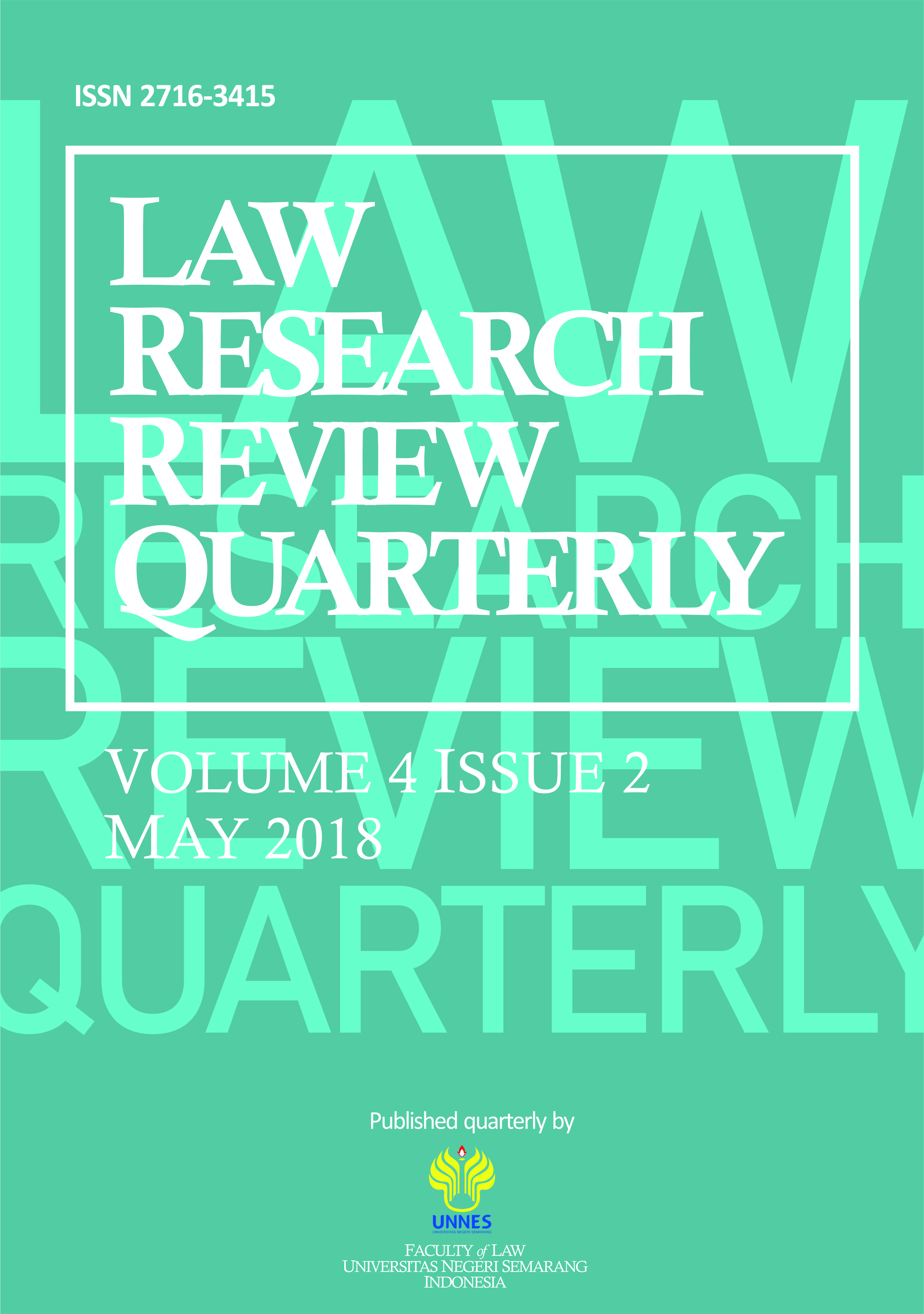Juridical Study of Movement #2019GantiPresiden in Election Crime Perspectives in Indonesia
Main Article Content
Abstract
Measuring success in a democratic country, elections have their own significance. This is because holding direct elections can be a source of legitimacy for power in a country. Aside from being a source of legitimacy, this general election is one of the means to collect the political rights of every citizen. With the change of power through the electoral process, it is expected to bring leaders who are able to accommodate the ideals of the nation. As one of the stages procedures in the general election process carried out in Indonesia based on Undang-undang nomor 7 tahun 2017 tentang Pemilihan Umum, namely the campaign process. The campaign process is one of the strategic steps in the electoral stage to introduce the vision and mission as well as seeking public support for each candidate leader. Hastag #2019GantiPresident is a growing trend in Indonesia in 2019. This movement is one of the initiated by the opposition party with the aim of socializing its desire to replace the present president with a new president in the 2019 general election. in the democratic process, the campaign limits in the electoral law are determined. One of them relates to the campaign carried out outside the schedule set by the General Election Commission in the Regulation of the General Election Commission.
Article Details
All writings published in this journal are personal views of the authors and do not represent the views of this journal and the author's affiliated institutions. Author(s) are retain the copyrights of the Article. However, before publishing, it is required to obtain written confirmation from Author(s) in order to ensure the originality (Author Statement of Originality). The statement is to be signed by at least one of the authors who have obtained the assent of the co-author(s) where applicable.This work licensed under a Creative Commons Attribution-ShareAlike 4.0 International (CC BY-SA 4.0)
References
Kemenkumham. (2014). “Partai Politik Dan Demokrasi Indonesia Menyongsong Pemilihan Umum 2014â€, Jurnal Legislasi Indonesia, Vol.9 No.4 Desember 2014.
Lubis, M Solly. (1984). Hak-Hak Asasi Menurut UUD 1945, dalam Padmo Wahyono, Masalah Ketatanegaraan Indonesia Dewasa ini. Jakarta: Ghalia Indonesia.
Moeljatno. (1985). Azas-Azas Hukum Pidana. Jakarta: Bina Aksara.
Mulyadi. (2013). Perbandingan Tindak Pidana Pemilu Legislatif Dalam Perspektif Hukum Di Indonesia. Bandung: PT Refika Aditama.
Putri, Prastiti Kharisma. (2018). “Gerakan #2019GantiPresiden Melanggar? Ini Penjelasan Bawasluâ€, DetikNews (diakses melalui www.m.detik.com pada tanggal 02 September 2018)
Santoso, Topo. (2003). “Penyelesaian Tindak Pidana Pemilu di Indonesiaâ€, Jurnal Hukum dan Pembangunan Nomor 2 Tahun XXXIII.
Santoso, Topo. (2003). “Penyelesaian Tindak Pidana Pemilu di Indonesiaâ€. Majalah Hukum & Pembangunan No 2 Tahun XXIII. Januari – April 2003.
Sastrawidjaja, Sofjan. (1995). Hukum Pidana Asas Hukum Pidana Sampai Dengan Alasan Peniadaan Pidana. Bandung: Armico.
Sudarto. (1991). Hukum Pidana 1A-1B. Purwokerto: Universitas Jenderal Soedirman.
Peraturan Perundang-Undangan
Republik Indonesia. Undang-undang Dasar Negara Republik Indonesia Tahun 1945.
Republik Indonesia. Undang-undang Nomor 17 Tahun 2017 tentang Pemilihan Umum. Lembaran Negara Republik Indonesia Tahun 2017 nomor 182.
Kitab Undang-undang Hukum Pidana (KUHP)
